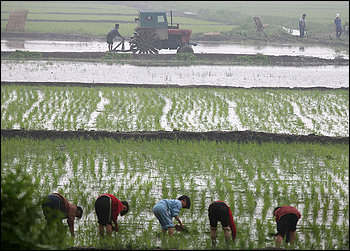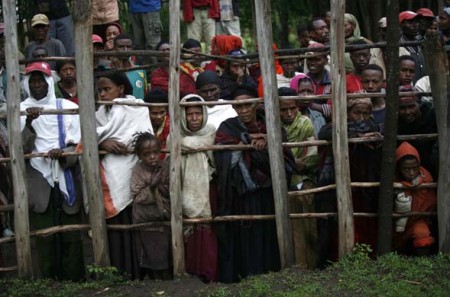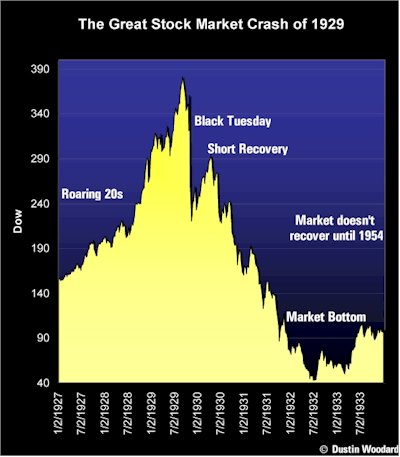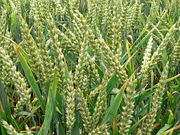We always knew that this would start happening. Earlier this month, I wrote about the severe economic problems that are plaguing South America, but up to this point I have neglected to discuss the horrific famines that are breaking out all over Africa. Right now there is a desperate need for food in South Sudan, Somalia, northeast Nigeria, Eritrea and Kenya. And Yemen, even though it is not technically part of Africa, is being affected by many of the same factors that are crippling nations all over eastern Africa. The United Nations says that more than 20 million people could die from starvation and disease if nothing is done. When I write about economic collapse, this is the kind of thing that I am talking about, and we are starting to see alarming conditions spread across the globe. Many believe that we could never possibly face this kind of food crisis in the western world, but unfortunately wishful thinking will only get you so far.
famine
Headed for lowest solar activity in four centuries – ‘The primary concern is famine’ (Video)
– Headed for lowest solar activity in four centuries – Video (Ice Age Now, Aug 18, 2014):
“The primary concern is famine.”
We appear to be headed for conditions similar to the Maunder Minimum, says this video from Suspicious0bservers. This low in solar activity comes after what was likely the highest solar activity in the last 3,000 years.
Here are a few observations from the video:
U.N. Declares Famine In Somalia
– Explainer: Famine in Somalia (Guardian, July 20, 2011)
By officially declaring parts of Somalia to be in the grip of famine, the UN will be hoping to galvanise governments and the public into action to address the food crisis in east Africa. The UN estimates that 12 million in the region are now in need of emergency help and warns that thousands will die unless aid arrives quickly.
Where is the famine?
The UN declared on Wednesday that famine now exists in two regions of southern Somalia: southern Bakool and Lower Shabelle. Across the country, nearly half of the Somali population – 3.7 million people – are now facing severe food shortages, of whom an estimated 2.8 million people are in the south. The Food Security and Nutrition Analysis Unit (FSNAU), funded by the UN’s Food and Agriculture Organisation (FAO), warns that in the next one or two months famine will become widespread throughout southern Somalia unless help arrives. It says the crisis represents the most serious food insecurity situation in the world today and that the current humanitarian response is inadequate. Although Somalia is the worst-affected country, the crisis affects a much wider region, including the northern part of Kenya and southern parts of Ethiopia, Djibouti, the northern Karamoja region of Uganda, and parts of South and North Sudan, where large areas are classified as being in a state of humanitarian emergency.
Food Prices to Rocket By 50% As Global Hunger Epidemic Causes Riots and Famines
The same elite criminals that have intentionally caused famines and all kinds of disasters around the world (and the financial crisis) are now calling for GM food as the solution.
Problem – reaction – solution.
All think-tanks belong to the elite financed propaganda machinery.
We have the dirt-cheap technology to green the entire Sahara desert in almost no time.
And GM food is the solution? Sure!:
– Max Keiser: Monsanto And The Seeds Of Evil
– The GMO Catastrophe In The US, A Lesson For The World
– Monsanto: GM-Corn Harvest of 82,000 Hectares in South Africa Fails
– Exposed: the great GM crops myth (The Independent):
“Genetic modification actually cuts the productivity of crops, an authoritative new study shows, undermining repeated claims that a switch to the controversial technology is needed to solve the growing world food crisis.”
Food prices are about to explode:
– ‘The World Is Only One Poor Harvest Away From Chaos’
– Australia Floods: Food Prices to Rise 30% – 50% of Crops Affected, With 20% Wiped Out
– India: Food Inflation Up Over 18 Percent In Just One Year
– Algerian Riots Continue Over Skyrocketing Food Prices And Unemployment
More on GM food at the end of the following elite propaganda article.
The coming global food crisis has been artificially created, like the financial crisis.
* ‘Perfect storm’ of issues will bring widespread starvation if nothing is done
* Food prices to rise by 50 per cent over the next decade
* GM crops will be needed to feed the world
* Global population to grow to 9billion by 2050

Food crisis: A leading Government think tank has warned scaremongering over GM farming is no longer acceptable
The cost of food will soar by 50 per cent over the next few decades as the world becomes racked by famine, mass migrations and riots, experts have warned.
The increase will be triggered by the exploding world population, rising cost of fuel and increased competition for water, according to a leading Government think-tank.
Spiralling food prices will push hundreds of millions of people into hunger, trigger mass migration and spark civil unrest, the report warned.
And in the UK, the price of basics such as bread, rice and milk will spiral to inflation-busting record prices within the next few decades.
The report, from Foresight, a think-tank set up to predict future crises, called for ‘urgent action’ to prevent food shortages, and said genetically modified crops may be needed to prevent famines.
Even a ‘modest’ rise in food prices could push 100million people into hunger, the report warned.
Read moreFood Prices to Rocket By 50% As Global Hunger Epidemic Causes Riots and Famines
North Korea lifts restrictions on private markets as last resort in food crisis

North Koreans work on a farm near the Yalu River. A dire food shortage has led the government to lift all restrictions on private markets. (Reuters)
SEOUL — Bowing to reality, the North Korean government has lifted all restrictions on private markets — a last-resort option for a leadership desperate to prevent its people from starving.
In recent weeks, according to North Korea observers and defector groups with sources in the country, Kim Jong Il’s government admitted its inability to solve the current food shortage and encouraged its people to rely on private markets for the purchase of goods. Though the policy reversal will not alter daily patterns — North Koreans have depended on such markets for more than 15 years — the latest order from Pyongyang abandons a key pillar of a central, planned economy.
With November’s currency revaluation, Kim wiped out his citizens’ personal savings and struck a blow against the private food distribution system sustaining his country. The latest policy switch, though, stands as an acknowledgment that the currency move was a failure and that only capitalist-style trading can prevent widespread famine.
Read moreNorth Korea lifts restrictions on private markets as last resort in food crisis
Rising food prices pushing east Africa to disaster

More than 14 million people in the east Africa region require urgent food aid due to drought and spiralling cereal and fuel prices, aid agencies say.
In an emergency appeal launched today, Oxfam warns that millions of people in Ethiopia, Somalia, Uganda, Djibouti and Kenya are fast being pushed “towards severe hunger and destitution”. Earlier this week the UN said it needed £200m to avert a humanitarian disaster.
The hunger crisis is worse than the last regional emergency in 2006, when drought caused 11 million people to need assistance, because of the added impact of the global food price increases. Poor families are struggling to buy staples such as maize and wheat, which have more than doubled in price over the past 12 months.
__________________________________________________________________________________

Sheikh flies Lamborghini 6,500 miles to Britain for oil change
His black-and-gold supercar costs £3,552 to service at an approved dealer – on top of the £20,000 to freight from Qatar to Britain. Source: Sun
___________________________________________________________________________________
“In previous droughts most people on the margins found ways to cope,” said Peter Smerdon, of the World Food Programme. “But the simultaneous increase in food prices this time around means they are cutting down on meals and taking their kids out of school in order to try to get by. More people are falling over the edge.”
Top 25 Things Vanishing From America: No.1 The Family Farm
Here you will find all Top 25 Things Vanishing From America.
This series explores aspects of America that may soon be just a memory — some to be missed, some gladly left behind. From the least impactful to the most, here are 25 bits of vanishing America.
1. The Family Farm

My mother grew up on her family’s dairy farm in central Oregon, and when she was a child she was in 4-H — just like all the kids in her town. I’ve always admired her way with the “home arts” (she makes a mean jar of cucumber relish, and her embroidery festoons quilts for all my boys) so when I saw her 4-H ribbons I assumed that big purple one must have been for brownies, or jam. “Oh, that was for the pig I raised,” she said matter-of-factly.
Read moreTop 25 Things Vanishing From America: No.1 The Family Farm
Status Report on the Collapse of the U.S. Economy
“But, realistically, all ordinary people can do today is try to survive, perhaps by working with friends and neighbors in planting food and living within the underground economy. At least people might not then have to starve to death, because hard as it is to believe that “it could happen here,” widespread famine in the U.S. seems a real possibility over the next several years. Nations take such risks when they allow capitalist agribusiness to destroy local agriculture.”

With the economic news of the week of July 14-the continuing crisis among mortgage lenders, the onset of bank failures, the announced downsizing of General Motors, the slide of the Dow-Jones below 11,000-we are seeing the ongoing collapse of the U.S. economy.
Even the super-rich are becoming nervous as cries for an emergency suspension of short selling ring out.
What is really taking place, however, is that the producing economy of working men and women is being crushed by the overall debt burden on households, businesses, and governments that could reach $70 trillion by 2010. The financial system, including mortgage giants Fannie Mae and Freddie Mac, is bankrupt, as the debts it is based on cannot be repaid.
The Best Farmland in the U.S. Is Flooded; Most Americans Are Too Stupid to Panic
The best commentary I could offer is a link to a previous story:
World’s Largest Maker of Crop Nutrients: Famines May Occur Without Record Harvests
But I’ll ramble on a bit more about this, anyway.
As soon as I became aware of the flooding situation in the American Midwest, I posted the story with the EMERGENCY prefix on the title. Just so we’re clear, when I write EMERGENCY at the beginning of a post title, this is my way of indicating that the situation is as serious as it gets. It means that I feel as though everyone reading should consider taking immediate evasive action. All the jawboning about conspiracy, how things could have been, how things should be, etc. are behind us now. You know, EMERGENCY, act fast, eyes wide, nostrils flared, etc.
While the food supply situation has skated along a knife edge so far this year, with higher prices and many countries experiencing food riots, widespread famine did not take hold. In an incredible move, the Japanese quietly eased rice shortages by releasing portions of their imported rice stockpiles-from giant warehouses in Tokyo-into the system; a welcome but one off blip in the big picture. What happens next time?
Now, this growing season, when yields need to be at record levels to avert disaster, what do we find? Floods or droughts in several of the breadbaskets of the world.
Whatever your plans are, I hope that you’re ready to execute them (or, better yet, are executing them). I’m pretty sure that most people have done nothing, and I don’t know why this continues to amaze me.
How can so many people, even those who should know better, be content to hit the wall without doing anything at all to change course? This includes my own family, who lives in Southern California.
I view Southern California as one of the most dangerous death traps in the world. Since it’s such an important focus of economic activity, though, I like to keep tabs on herd activity there, just for my own situational awareness. I can’t get a meaningful response from my dad-who thinks that traffic jams everywhere in the region and at all times of the day and night represent ‘progress’-I emailed someone there who’s about to flee to a country in Northern Europe. I asked if there was even a subtle sense of panic setting in with regard to the food and fuel prices. Here is part of the response I received:
I have noticed that most people don’t even have instinct enough to panic and hoard, and they wouldn’t know *what* to hoard. They don’t cook, they don’t know what a ‘staple’ means. A young woman in my training last week brought animal crackers and cheese ruffles for breakfast, and a box of Cheezits and Coke Zero for lunch. I asked her mockingly if she’d tried fruit or vegetables, she said she couldn’t afford them. I once saw a woman behind me at Ralphs with food stamps, and she was buying cottage cheese, dry pinto beans, and wheat bread, and told her kid to put the Doritos back. If you don’t have that kind of sense to begin with, the current situation is not going to give it to you.
We’re now well into a phase where system maintenance depends on the inability of the herd to grasp the nature of the immanent threat. “Yes, Kevin,” you say. “Same as it ever was.”
I don’t think so. The food situation is far off the radar screens of Joe Average. It only becomes a problem after it’s too late to do anything substantive to ameliorate conditions. We’ve already seen food riots, armed escorts for grain deliveries, rationing, sharply higher prices. And still, I’m mostly noticing yawns and drugged gurgles from the herd. Meanwhile, the die is all but cast on this year’s lower crop yields.
If the herd had any idea of what was coming, this show would be over inside of 24 hours. You might be sick of reading this on Cryptogon, but, it’s worth repeating: Use your time wisely.
Via: Financial Times:
Consumers were warned to expect even sharper increases in global food prices after US officials said that some of the country’s best farmland was facing its worst flooding for 15 years.
Agriculture officials and traders said the damage could push up worldwide corn and soyabean prices, which have spiralled in recent days as floods have swamped crops in parts of Iowa, the US’s biggest corn-producing state.
The warning comes at a time when high food prices are already sparking protests across the developing world.
Corn futures in Chicago this week rose to record highs of more than $8 a bushel on fears that up to 5m acres of the crop could be lost, while soyabean prices hit a record of $15.93 a bushel.
Read moreThe Best Farmland in the U.S. Is Flooded; Most Americans Are Too Stupid to Panic
Prince Charles: Eighteen months to stop climate change disaster
The Prince of Wales has warned that the world faces a series of natural disasters within 18 months unless urgent action is taken to save the rainforests.
In one of his most out-spoken interventions in the climate change debate, he said a £15 billion annual programme was required to halt deforestation or the world would have to live with the dire consequences.
“We will end up seeing more drought and starvation on a grand scale. Weather patterns will become even more terrifying and there will be less and less rainfall,” he said.
“We are asking for something pretty dreadful unless we really understand the issues now and [the] urgency of them.” The Prince said the rainforests, which provide the “air conditioning system for the entire planet”, releasing water vapour and absorbing carbon, were being lost to poor farmers desperate to make a living.
He said that every year, 20 million hectares of forest – equivalent to the area of England, Wales and Scotland – were destroyed and called for a “gigantic partnership” of governments, businesses and consumers to slow it down.
“What we have got to do is try to ensure that these forests are more valuable alive than dead. At the moment, there is more value in them being dead,” he said.
Read morePrince Charles: Eighteen months to stop climate change disaster
Global free market for food and energy faces biggest threat in decades
The global free market for food and energy is facing its biggest threat in decades as a host of countries push through draconian measures to hold down prices, raising fears of a new “resource nationalism” that could endanger world food security.

Somali’s demonstrate against high food prices in the capital Mogadishu. At least two people were killed in clashes
India shocked the markets yesterday by suspending trading in futures contracts for a range of farm products in a bid to clamp down on alleged speculators and curb inflation, now running at 7.6pc.
The country’s Forward Markets Commission said contracts for soybean oil, chana (chickpeas), potatoes, and rubber had been banned for four months, even though a report by the Indian parliament last month concluded that soaring food costs had almost nothing to do with the futures contracts. Traders in Mumbai slammed the ban as an act of brazen political populism.
The move has been seen as a concession to India’s Communist MPs – key allies of premier Manmohan Singh – who want a full-fledged ban on futures trading in sugar, cooking oil, and grains.
As food and fuel riots spread across the world, a string of governments have resorted to steps that menace the free flow of food and key commodities. Argentina has banned beef exports, while Egypt and India have stopped shipments of rice.
Kazakhstan has prohibited wheat exports. Russia has slapped a 40pc export duty on shipments, and Pakistan a 35pc duty.
China, Cambodia, Malaysia, Philipines, Sri Lanka, and Vietnam have all imposed export controls or forms of rationing to ease the crisis.
UN Secretary-General Ban Ki-moon has warned that this lurch towards national controls is becoming a threat to the open global system we all take for granted. “If not handled properly, this crisis could result in a cascade of others and affect political security around the world,” he said.
A new report by UBS says the scramble for scarce raw materials is turning ever more political, with ominous implications for ill-endowed societies that rely on imports.
“The bottom line is that countries with resources, particularly in food and energy are becoming more protective of these resources,” it said.
(I know I am repeating myself and I know that many are already well prepared. This is for the ones that are not:
Store food and water “NOW”. Do this in a relaxed manner because your brain shuts down when you are under stress and in survival mode. – The Infinite Unknown)
Read moreGlobal free market for food and energy faces biggest threat in decades
Could we really run out of food?
Biofuel production, poor harvests and emerging nations’ growing appetites are emptying the world’s pantry, sending prices soaring. It’s a good time to invest in agricultural stocks.
As if a bear market, U.S. credit crunch, energy crisis and city financing emergency were not enough for one year, experts say the world is now facing down the barrel of the worst catastrophe of all: famine.
The very idea that the modern world could run out of food seems ludicrous, but that is the flip side, or cause, of the tremendous recent increase in the cost of raw wheat, corn, rice, oats and soybeans. Food prices are not escalating because speculators have run them up for sport and profit, but because accelerating demand in developing nations, biofuel production and poor harvests in some areas have made basic foodstuffs truly scarce.

(In this article: …global grain reserves are “precarious,” at just 1.7 months of consumption, down from 3.5 months of reserves as recently as 2000.”…)
Famines May Occur Without Record Crops This Year

Feb. 20 (Bloomberg) — Grain farmers will need to harvest record crops every year to meet increasing global food demand and avoid famine, Potash Corp. of Saskatchewan Inc. Chief Executive Officer William Doyle said.
People and livestock are consuming more grain than ever, draining world inventories and increasing the likelihood of shortages, Doyle said yesterday in an interview on Bloomberg Television. Global grain stockpiles fell to about 53 days of supply last year, the lowest level since record-keeping began in 1960, according to the U.S. Department of Agriculture.
“If you had any major upset where you didn’t have a crop in a major growing agricultural region this year, I believe you’d see famine,” Doyle, 57, said in New York.
Potash, the world’s largest maker of crop nutrients, has more than doubled in market value in the past year as record crop prices allowed farmers to spend more on fertilizer to boost yields. The company has more than doubled net income in the past two years to $1.1 billion and expects gross profit from potash to expand to $8 billion within five years from $912 million in 2007. Potash is a form of potassium that helps plants grow.